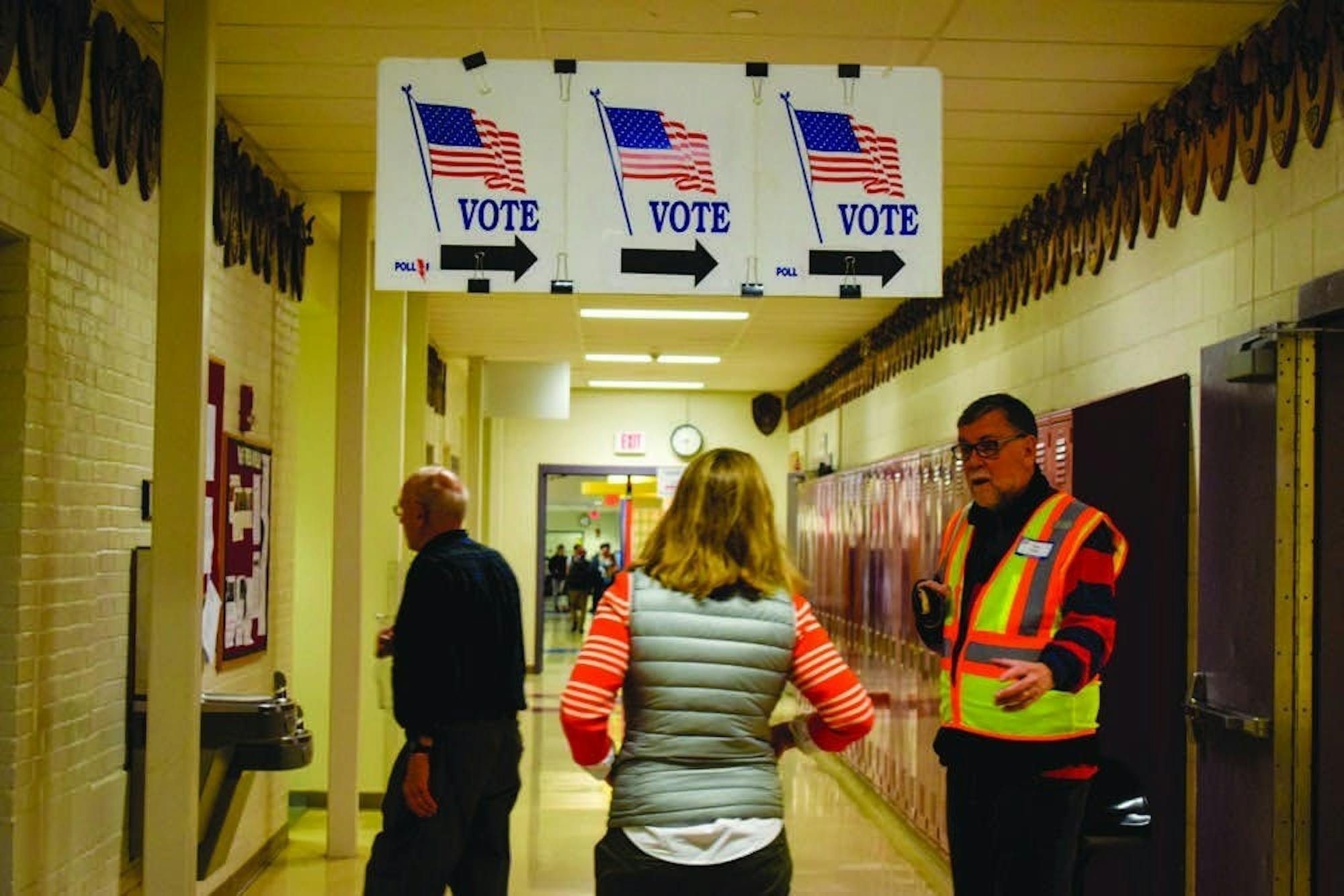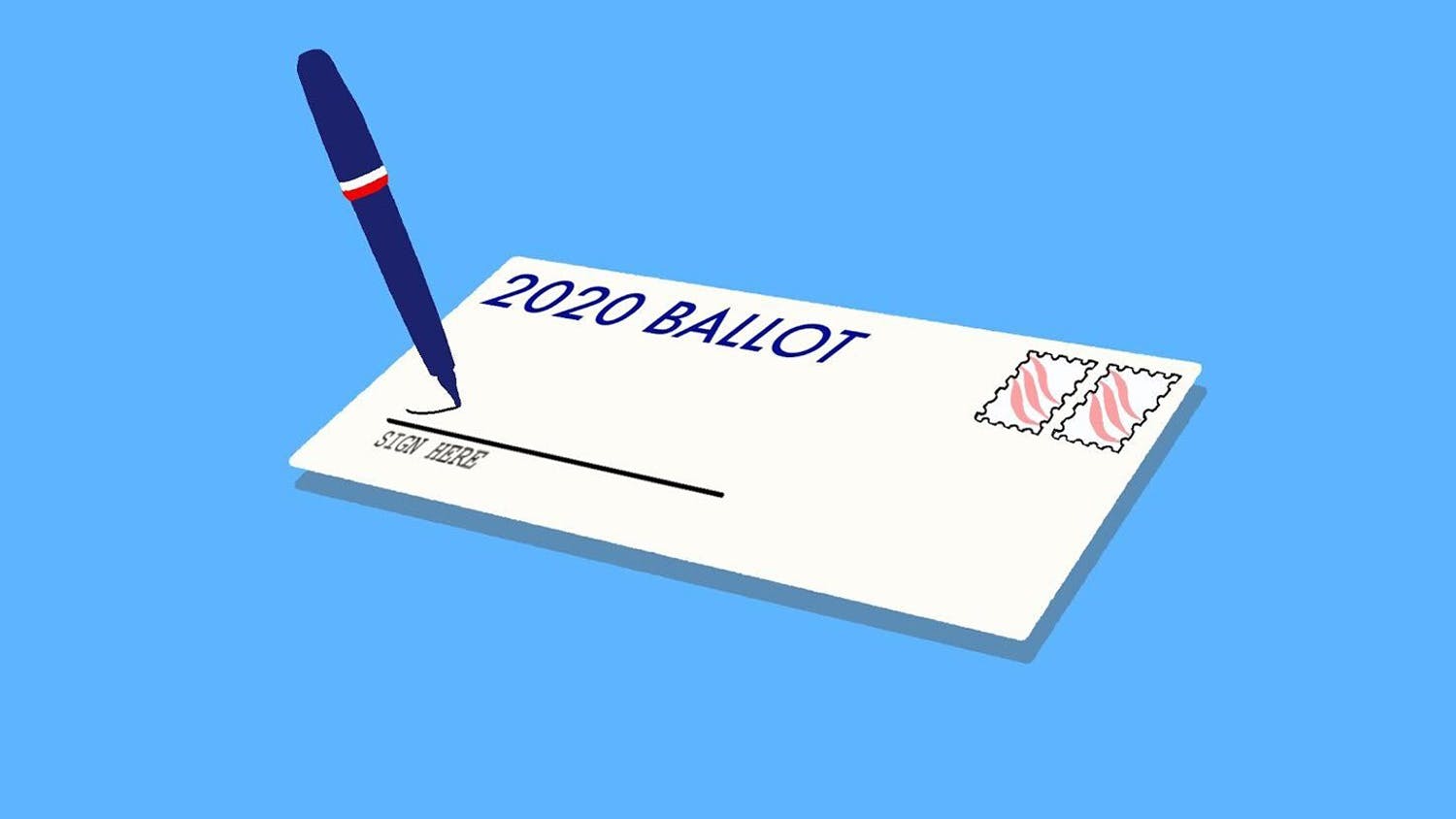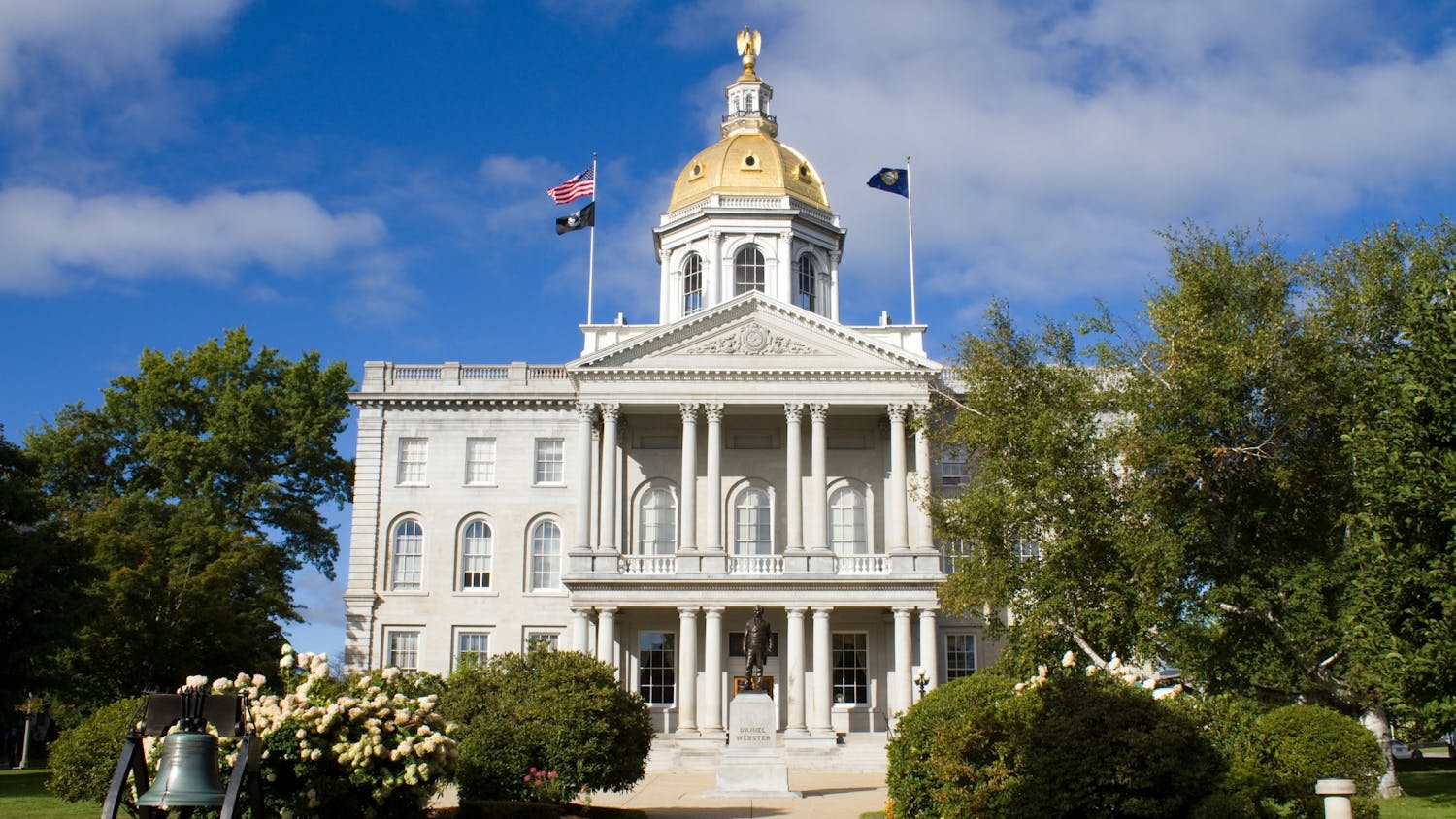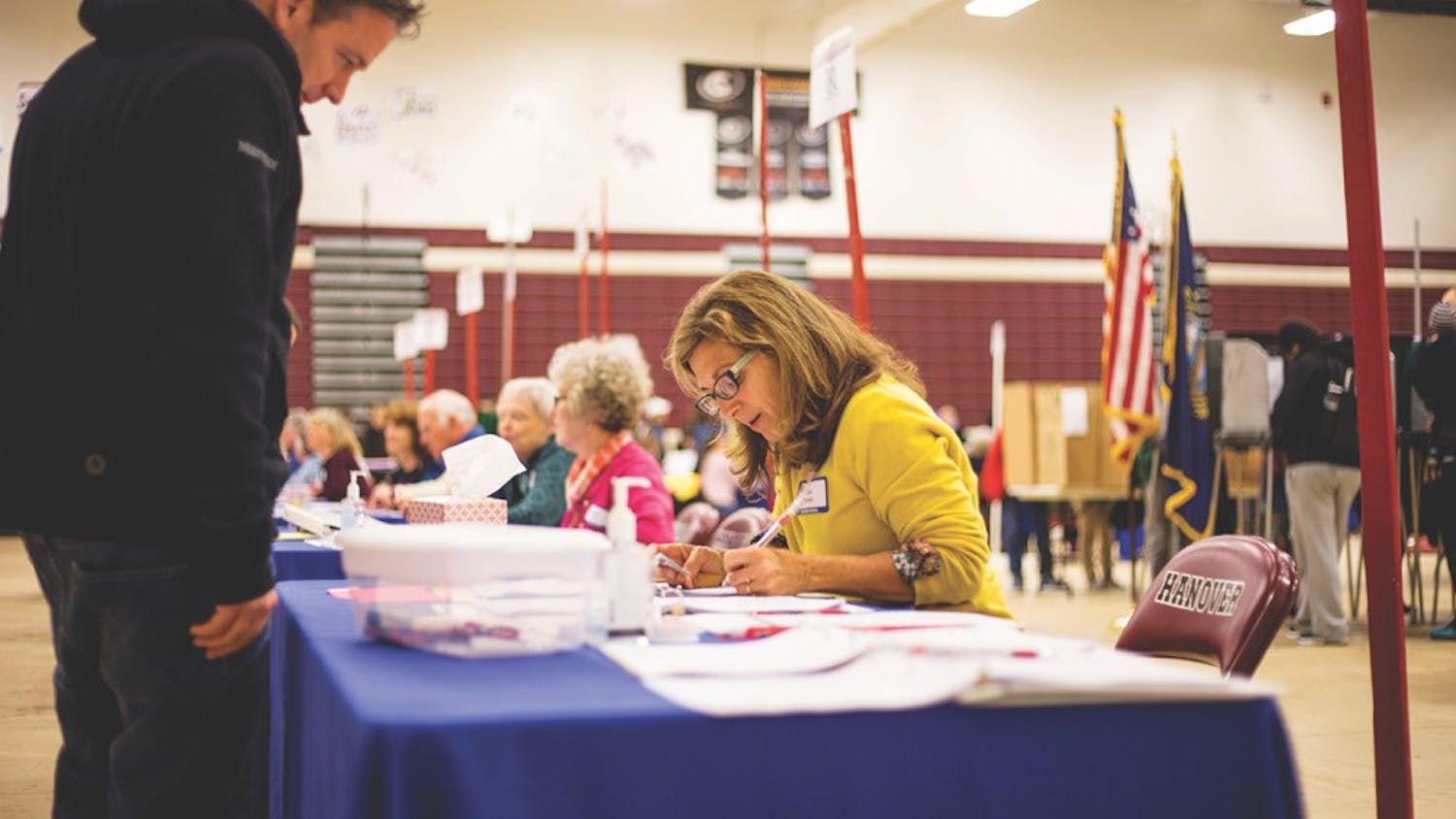With a number of highly contested races on the ballot this November, political hopefuls across New Hampshire have been vying to court the student vote. In a virtual town hall last week, NextGen New Hampshire, a political action committee that seeks to mobilize young voters to elect progressive candidates, made its pitch to students to support Democratic nominee for New Hampshire governor, state senator Dan Feltes (D-Concord).
Speakers at the event discussed Feltes’ policies, particularly those relating to renewable energy and health care, and the importance of voting in the November race for governor.
Dan Bristol, New Hampshire press secretary for NextGen America, said the event aimed to educate young voters and college students about Feltes’s platform and the importance of voting.
“Young people, historically, are less likely to vote, but we tend to be the most affected by the decisions that are made,” Bristol said.
Feltes, who won his primary race against New Hampshire executive councilor Andru Volinsky, will challenge Republican incumbent Governor Chris Sununu in November.
According to a Sept. 2 Granite State Poll conducted by the University of New Hampshire Survey Center, 59 percent of 18- to 34-year-olds planned to vote for Sununu and 30 percent for Feltes. In total, 57 percent of those polled said they would vote for Sununu and 33 for Feltes.
NextGen supports Feltes, and its initiative “Students Against Sununu” aims to mobilize young voters to unseat the two-term governor. The Sept. 17 event, which was streamed on Facebook, had over 200 live viewers and hosted four speakers, including former Democratic congresswoman Carol Shea-Porter. Additional materials, such as a “Pledge to Vote” form expressing commitment to vote for Feltes, were posted after the event.
Shea-Porter said that because Feltes comes from a working-class family, he is the “right person for this moment.” She specifically noted that she supports Feltes’ plans for increasing renewable energy in the state, as well as the senator’s plans for reliable health care and racial equality within the governor’s office.
Kai Frey ’22, who attended Thursday’s town hall, said they were pleased with the event overall. Frey plans to vote in person for Feltes in November.
“I did vote for Dan Feltes in the primary,” Frey said. “I also just really want to get rid of Sununu.”
Speaker Cody Jacobsen, director of campaign operations at the New Hampshire organization Campaign for a Family Friendly Economy, said during his address that Feltes’s support of paid family and medical leave is important to him as a voter.
New Hampshire state director for NextGen America Emma Tyler, another speaker at the event, said she believes unseating Sununu in November is crucial.
“I think Governor Sununu has played politics with the future of New Hampshire, and think he has vetoed legislation that would set up future granite-staters for success,” Tyler said.
In their speeches, Jacobsen and Tyler both discussed Feltes’ climate change plans. Tyler called climate change “one of the most important issues” for young New Hampshire voters. Jacobsen said Feltes plans to increase the use of renewable energy in New Hampshire, including net metering — an electricity billing mechanism allowing consumers who generate their own electricity more flexibility on when to use it — which Jacobsen said Feltes has pushed for in the state Senate.
According to the Feltes campaign’s website, the senator plans to commit to 100 percent clean energy in New Hampshire by 2050, to increase building efficiency and to invest in clean transportation options such as electric transit corridors.
Speakers at the event also noted Feltes’s support for various health care measures, including the expansion and reauthorization of Medicare, and his work to prevent the repeal of the Affordable Care Act in New Hampshire.
Emery Rheam ’22, president of the Dartmouth Democrats, said that the club has worked to inform voters about Feltes and November’s gubernatorial election.
“People may be less aware of the New Hampshire governor's race [than the presidential election], but it is a super important race, and something people should be informed on,” she said.
Various students supporting Feltes emphasized his efforts around student voting rights as compared with Sununu. Rheam noted Sununu’s signing of House Bill 1264 in 2018, a bill that complicated the definition of legal residency in New Hampshire, calling the bill an “attack on student voting rights.”
“Under [Sununu’s] administration, there have been attacks on student voting rights,” Rheam said. “He has done very little to protect student voting rights, but Dan Feltes has worked a lot in the state House to ensure that students have protected voting rights in the state of New Hampshire.”
Rachel Florman ’21, who has volunteered for NextGen and attended the event, agreed.
“Sununu has been on the wrong side of the student vote debate every time it comes up,” Florman said.
According to Florman, Volinsky had a strong youth support coalition in the primary election, making it crucial that NextGen revives support for Feltes among young voters.
“I think it is important to show young voters that just because he isn’t as left-leaning as Volinsky, that doesn’t mean he doesn’t have a commitment to the future of young people in the state,” Florman said. “I think it is very important that they communicate that in a way that is less biased than Feltes’s team itself.”
Florman said she has not agreed with Feltes on all his policies, particularly regarding climate issues, but she still plans to support him this November.
“I’ve disagreed with him in the past on his climate policy decisions,” Florman said, specifically noting his support for the Granite Bridge pipeline project, a natural gas transmission pipeline that would run from Manchester to the seacoast. “I think that is Feltes’ weakness among young people.”
According to NextGen’s New Hampshire organizer Nora Salitan, young people will make up 37 percent of the national electorate this year, making their vote particularly crucial.
“The youth vote matters,” Salitan said. “[Young voters] decide where the state goes, especially with these razor-thin margins of victory.”
Bristol said that the COVID-19 pandemic has impacted the election, making it even more important that voters mobilize.
“It is an unprecedented year — we are voting in the middle of a pandemic that makes it less safe to go to a polling place,” Bristol said, encouraging New Hampshire voters to vote ahead of time.
Correction appended (Sept. 24): A previous version of this article incorrectly quoted Salitan as saying that young people make up 37 percent of the New Hampshire electorate, when in fact they make up 37 percent of the national electorate.





